No one can deny the looming threat of cybercrime. The importance of data security and the rise of cyber-attacks would seem to be inevitable. It given the advances in the technology of recent decades. In 2017, data surpassed oil to become the world’s most valuable resource, with many industries becoming increasingly dependent on big data and analytics. Data is one of the most important, if not the most important asset for businesses to protect from cyber-attacks. There are more opportunities for cybercriminals to penetrate the barriers and access sensitive data. This can take place through various means, and the result will always be costly.
There is a common misconception that data breaches and cyber-attacks are only directed at large firms; such as the 2017 Equifax data breach that exposed the personal data of 143 million Americans. In fact, the Verizon 2019 Data Breach Report found that 43 percent of data breaches target small businesses. Cyber-attacks affected Billions of businesses in 2018; Cyber Security Ventures predicts global damages of cybercrime to reach $6 trillion by 2021. This will exceed the global profits of illegal drugs and will be the biggest transfer of capital in history.
All businesses should have a strategy to combat & protect the wide range of cyber-attacks we are all vulnerable to. This is the first barrier. IT services companies can help you develop business strategies to protect the risk of potential cyber-attacks. They can also provide IT consultancy and support in different areas of business. With potential threats like hackers or malware working to find every vulnerability in your network infrastructure, communications, cloud service, or IoT framework, building a strong and secure defense system couldn’t be more important.
Create a security policy
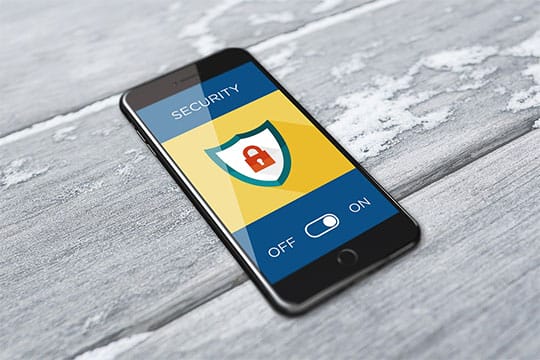
You should not deal Cybersecurity with a piece by piece; instead, you must approach with a policy so you can integrate it into the business strategy. You need to define security protocols for every area of business.
The policy should cover areas that include security audits, cloud computing, IoT, social media security, and data backup. With more sensitive information stored both physically and remotely, it is imperative that the policy addresses all potential areas of weakness. They should account for new media and technologies that may represent new vulnerabilities.
Recommended for you: Top 6 Cyber Security Tips for Businesses.
Use up-to-date equipment

In order to build the strongest system of defense, all equipment needs to be modern and updated. Make sure that the hackers and malware cannot find a weakness to exploit. This means that everything from network routers to firewall devices should be at a cutting-edge level.
You should carry out regular system monitoring for any potential problems; software should be downloaded and installed whenever updates are available.
“Wi-Fi networks must be secured, and remote employees and contractors need to exclusively log in on secure networks.” – as mentioned by Barbara Cook, the Director at Computers in the City, in one of her recent press releases.
Manage passwords securely and use MFA
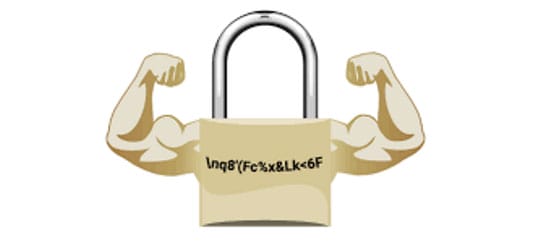
Passwords that are simple or easy to guess can be broken through with brute force attack software. These type of software can guess different password combinations. These alone means passwords need to be at the highest level of uniqueness to be secure. Password generators can assign the strongest passwords, with the use of upper- and lower-case letters, numbers and symbols.
For the best possible protection of business from cyber-attacks, you also need to change passwords on a regular basis. This can be handled by a password manager, such as Dashlane, that will manage, track and share passwords.
In addition to this, a secure level of authentication should always be employed. Currently, this is multi-factor authentication (MFA), which adds an extra layer of protection in the form of an SMS message, a phone call or a security token. You should apply MFA to all places where you use sensitive data, such as email accounts or financial records.
Deploy the best endpoint security
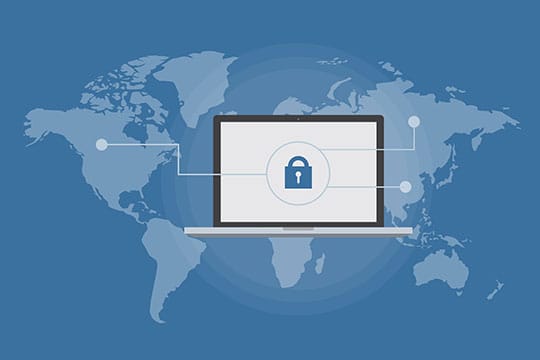
Endpoint security is the security that surrounds client devices and their bridging to a network. It includes technological solutions like antivirus, anti-spyware and anti-malware programs. It also includes URL filtering, application control, browser isolation, and network access control.
A single software solution can usually handle endpoint security issues. But this will need to be a system of comprehensive coverage that is appropriate for a particular organization. You will also need to monitor and update when necessary.
Make your company website secure
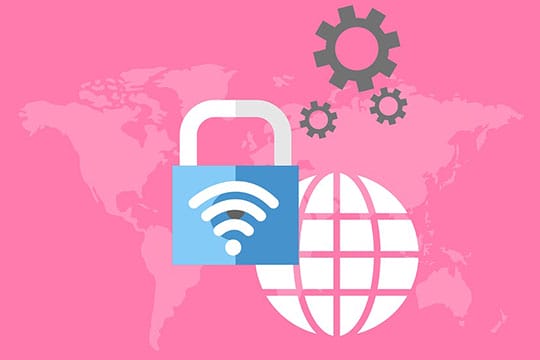
A solid system of security is good for business, and the safety of customers should be a priority. One option is to use a secure domain with HTTPS. HTTPS uses an SSL certificate to make sure the information passing through the website is safe.
This ensures the information submitted to the site, such as personal information, is encrypted so it will not be available to hackers. This will help protect sensitive data of the customer and business from cyber-attacks, make the website secure, and also improve the image and reputation of the business.
Carry out regular backups
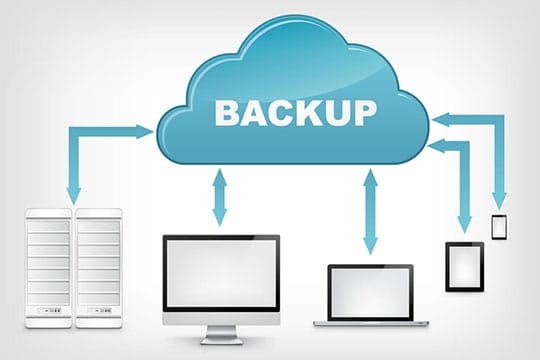
Backing up business data on a regular basis is good practice to protect yourself from a cyber-attack, but also to prepare against data loss of a different type. As per the recommendation by most guidelines you should carry out backups from between once a day and once a week, with the higher frequency being more secure. More frequent backups are also better for GDPR compliance, which requires all data to be available at all times.
Also, you should store on-premise backups at a physical distance from business operations to account for the possibility of a disaster. Backup duties should not be carried out by the same person to lessen the risk of an insider threat. You should store all data with full encryption.
Formulate a disaster recovery plan

Disaster can hit at any time, which is why business operations need to have in place a Disaster Recovery Plan (DRP) to address this threat. Possible disasters range from earthquakes to cyber-attacks, and the DRP details the course of action for recovering IT operations so the business can continue. Mission-critical functions are those that are necessary for business operations. Disaster recovery is a part of, and in conjunction with, the business continuity plan.
Disaster recovery planning involves risk assessment, which may involve the use of a Risk Assessment Framework (RAF), and involves specific plans for IT systems, applications, and data. Recovery Point Objective (RPO) is the age of files that need to be recovered for operations to continue. Though we often prefer not to think of worst-case scenarios, a disaster recovery plan is essential to every business.
Train your employees

When you give staff members the rules and regulations to follow, they may do this but without real commitment and cut corners at times. However, if you educate them about the real importance of certain actions then it will be clear to them why they need to be on board with IT security.
This could include explanations of what unsecured networks are and how personal devices can increase the risk of cyber-attacks. It may also include a presentation on the dangers of phishing, which accounts for 90 percent of all cyber-attacks on small businesses. Management should never assume that employees are well informed on issues of cybersecurity.
Keep informed on security issues

As well as training staff, business executives should stay up to date on events taking place in the outside world. Staying abreast of cyber-attacks in your industry and further afield will help inform your enterprise’s own approach to security.
The 2017 WannaCry ransomware attack was publicized a month beforehand. Microsoft released the patches to close the exploit. However, many organizations had not applied them or were using non-updated systems. The results were hundreds of millions – or perhaps billions of dollars – worth of damage worldwide.
Hire an IT support team

You can carry out various measures to help secure businesses against cyber threats. However, you need to implement each of these as part of a coherent strategy that is specific to each particular organization.
Experienced and reliable IT professionals are able to make assessments, identify weaknesses and develop security protocols that minimize risks. IT support can also implement protection procedures and make alterations and augmentations to systems over time. In addition to cybersecurity, IT support is indispensable for the range of services it provides, and consultants are able to develop IT systems as an enterprise grows and the IT security landscape evolves.
You may also like: How Network Security Can Help Avoid IoT Device Hacking?
Final Words

With an enormous number of cyber-attacks and huge financial losses, as a result, cybersecurity is an issue that needs to be taken seriously by anyone with sensitive data. Cybercrime is slowly becoming the most prolific and damaging criminal activity in the world, and this is something that we all need to educate ourselves on. As per reports, 60% of small businesses close within six months of a cyber-attack. Enterprises should take note of this and implement every precaution available to them – before it’s too late.






